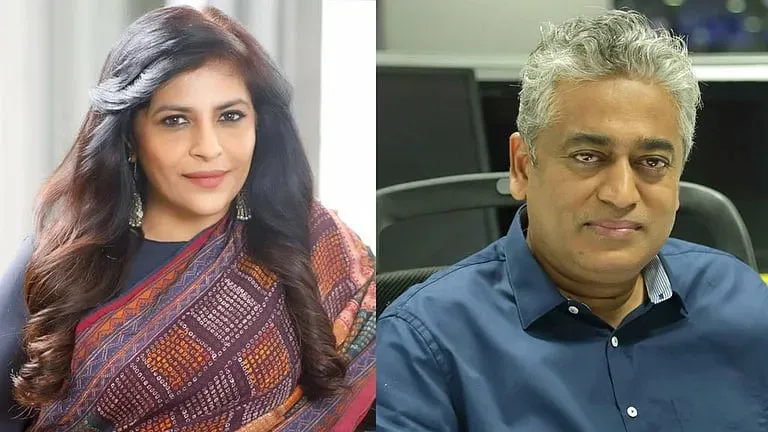The Delhi High Court has delivered a significant judgment in the defamation case filed by journalist Rajdeep Sardesai against political leader Shazia Ilmi. The case revolves around remarks made by Ilmi, which Sardesai argued were defamatory and tarnished his reputation in the media industry. In its ruling, the High Court sided with Sardesai, affirming that Ilmi's statements were indeed defamatory, and ordered her to pay a compensation for the harm caused. The case has garnered considerable attention, as it highlights the legal consequences of public figures making disparaging remarks, particularly in the context of political discourse and media relations.
The origin of the defamation case can be traced back to an incident in which Shazia Ilmi, a former member of the Bharatiya Janata Party (BJP), made certain comments on a news program that Sardesai contended were false and malicious. During the program, Ilmi accused Sardesai of manipulating media coverage in favor of particular political interests. Specifically, she alleged that Sardesai had skewed his reporting to benefit a certain political party, thereby compromising journalistic integrity. Sardesai, a senior journalist known for his work with prominent media outlets, took exception to these remarks, asserting that they not only misrepresented his work but also caused damage to his professional reputation.
Sardesai, through his legal team, filed a defamation suit, claiming that Ilmi's accusations were baseless and defamatory. According to Sardesai, Ilmi's statements went beyond the realm of legitimate political criticism and ventured into the domain of personal attacks. The journalist argued that her remarks falsely impugned his credibility and integrity as a journalist, affecting his standing within the media industry. Sardesai sought damages for the harm done to his reputation, emphasizing the serious consequences of such defamatory statements in the highly competitive and public nature of the media profession.
In her defense, Shazia Ilmi maintained that her comments were made in the course of political debate and should be protected under the right to free speech. She argued that political discourse inherently involves sharp criticisms and that her remarks were not meant to defame Sardesai personally but were part of her broader criticism of media practices. Ilmi further contended that as a public figure, Sardesai was not entitled to the same level of protection from criticism as private individuals. She claimed that her statements were within the permissible bounds of free expression in a democratic society.
The Delhi High Court, however, found Ilmi’s arguments to be unconvincing. In its ruling, the Court emphasized that while freedom of speech is a fundamental right, it is not absolute and must be exercised with responsibility, particularly when it comes to statements that can damage an individual’s reputation. The Court pointed out that Ilmi’s statements were not mere political criticisms but amounted to personal allegations against Sardesai’s professional integrity. It noted that there was no evidence to support her claims of bias or manipulation in Sardesai’s journalistic work, which made the accusations unfounded and harmful.
The judgment also highlighted the significant impact that defamatory statements can have on an individual’s career, especially in fields like journalism where credibility and integrity are paramount. The Court recognized that public figures like Sardesai, although subject to public scrutiny, are entitled to protection against defamatory remarks that do not have a factual basis. The High Court ruled that Ilmi’s statements were not only false but also malicious, aimed at damaging Sardesai’s reputation in the media industry.
As a result, the Delhi High Court directed Shazia Ilmi to pay compensation to Rajdeep Sardesai for the harm caused by her defamatory remarks. The Court also ordered her to issue a public apology for making the false allegations. The ruling reinforced the idea that while individuals have the right to engage in political debate and criticism, such speech must not cross the line into defamation, particularly when it involves false accusations that can harm a person’s reputation.
This case has significant implications for the relationship between media professionals, politicians, and public discourse in India. It serves as a reminder that defamatory remarks, even when made in the context of political commentary, can have serious legal consequences. The judgment underscores the responsibility of public figures, especially politicians, to ensure that their statements are based on facts and do not falsely tarnish the reputation of others, particularly those in the media.
In conclusion, the Delhi High Court’s ruling in favor of Rajdeep Sardesai in the defamation case against Shazia Ilmi sends a strong message about the boundaries of free speech and the legal protections available to individuals against defamatory statements. The judgment highlights the importance of protecting personal and professional reputations in the face of public criticism and serves as a reminder that allegations without factual basis can result in serious legal repercussions. This case is a pivotal example of how the judiciary navigates the intersection of free speech, political discourse, and defamation law in India.










0 Comments
Thank you for your response. It will help us to improve in the future.